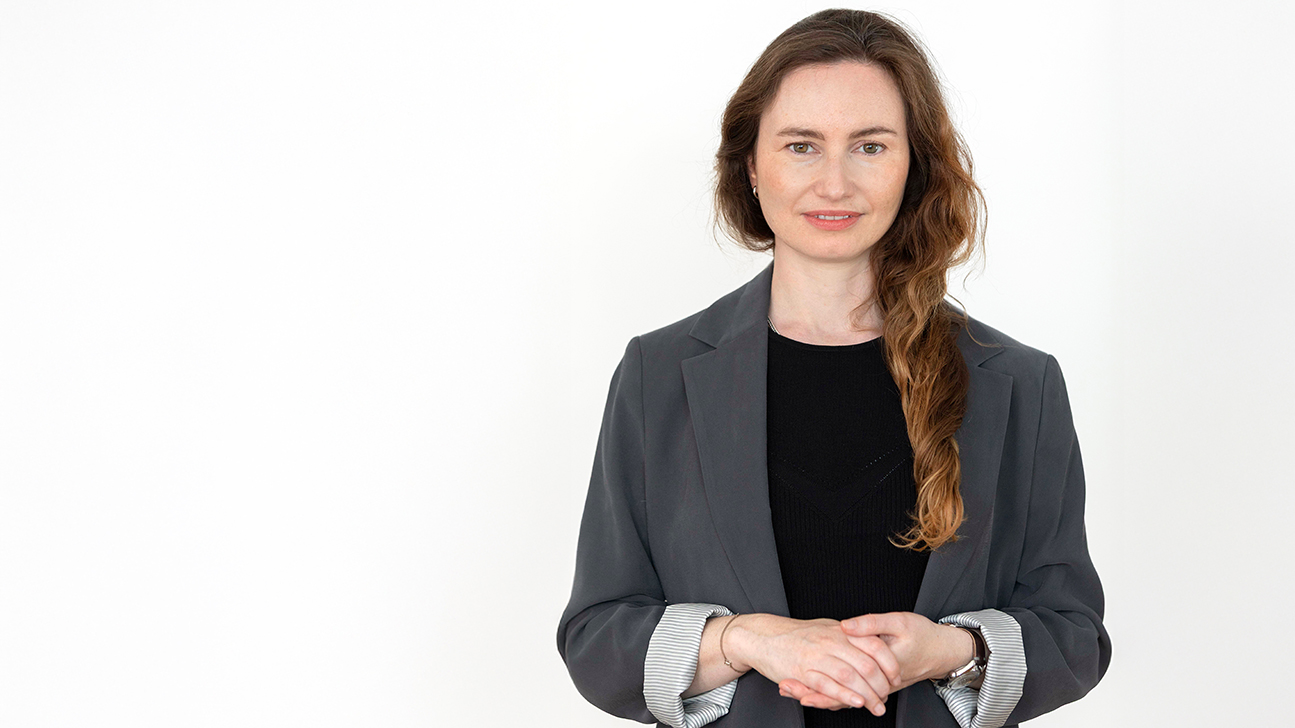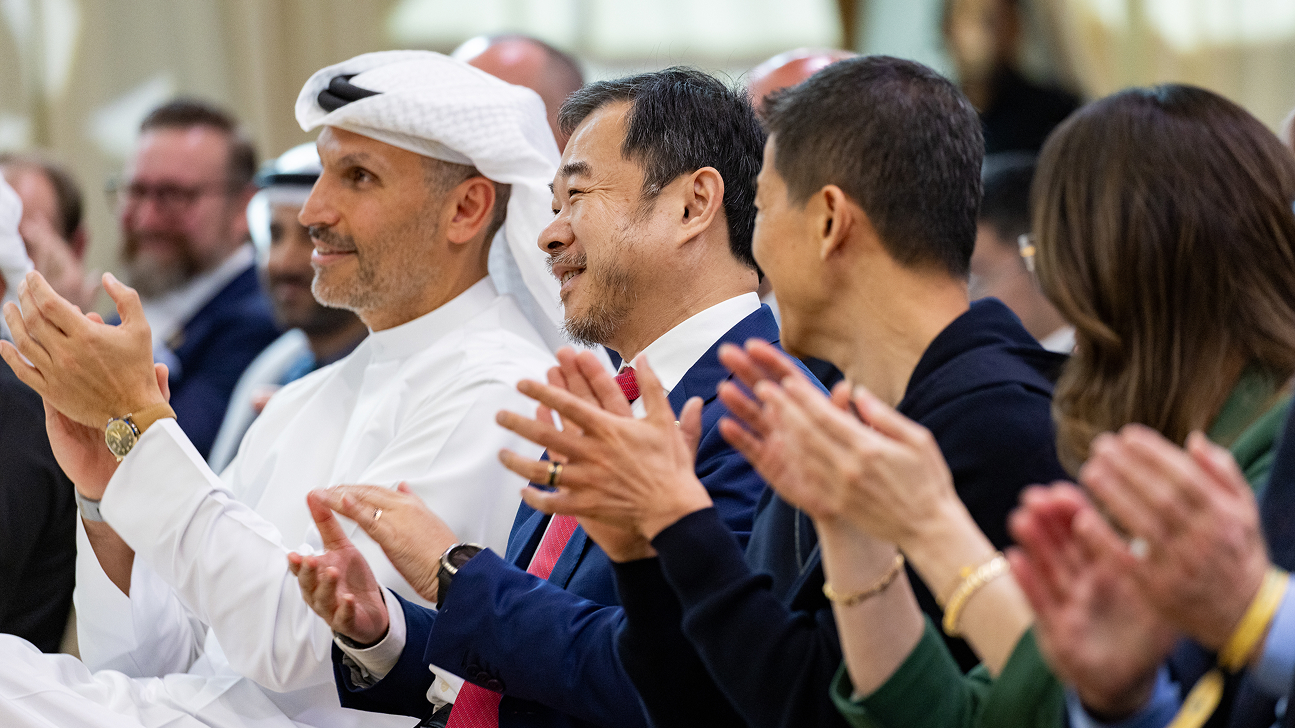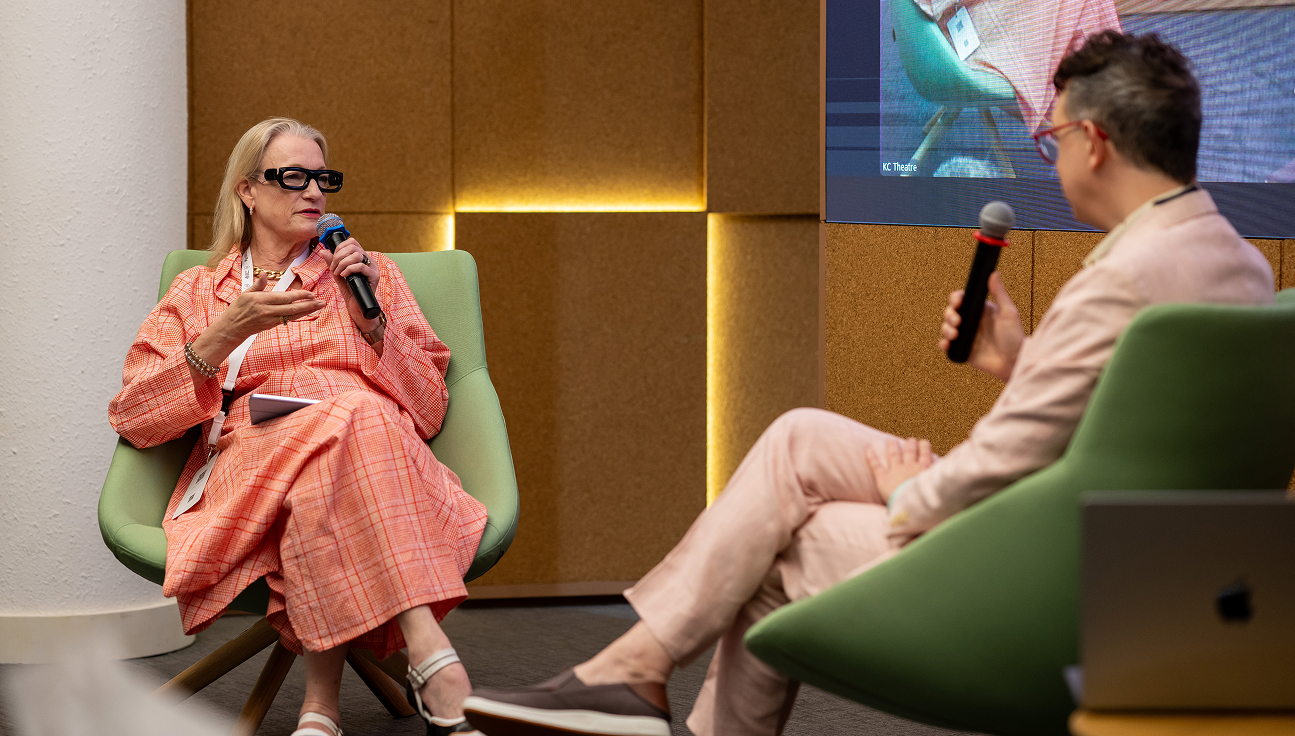Making sense of data in the age of AI
Tuesday, October 28, 2025

Laura Koesten often jokes about her unlikely journey into technology. Her first degree was healthcare – a field far removed from computing. Tiring of people’s requests for medical advice at social gatherings, she would fend them off by telling them that she worked in IT: a field she imagined to be less attractive, that would surely deter such interest.
“You need to be mindful about what you say because it might just come true,” smiles the Assistant Professor of Human-Computer Interaction at MBZUAI, “Eleven years later, that’s exactly where I ended up.”
The intervening decade has seen Koesten become a leading voice in the study of how people interpret, and interact with data. As such, her shift from healthcare to computer science was perhaps less random than it might sound, reflecting a curiosity about how people interact with their environments, be they physical, digital, or data-driven: the essence of human-computer interaction.
“I find it fascinating to think about how we move both in the physical and digital worlds,” she says. “How to adapt these environments to people rather than us having to adapt to them, which is really what happened in the early digital era, with clunky interfaces and the like.
“AI has really accelerated that need to adapt our environments, so that we can work and think with it effectively. But it still feels as though we know relatively little about how to do that. Because this requires studying people: understanding what people need to work alone and together, make sense of data, and interpret and navigate a changing world.
“This is my focus and my motivation. In the academic world, people are very used to using data – it’s their bread and butter – but for most people, it’s not their everyday language. This translation process – making it easier for people to engage with, understand and act upon data – is something that I am really committed to.”
Data beyond the spreadsheet
Koesten’s mission to make data more accessible began in earnest during her Ph.D. in computer science from the University of Southampton in the UK, in close collaboration with the Open Data Institute in London.
There she deepened her belief that understanding data will become increasingly vital to all sectors of society and explored what happens when data moves beyond spreadsheets into the real world of decision-making, governance, and public life.
“It’s going to get more and more important that we have some idea of how data is used in different systems and in decision making,” she says. “I feel that – as citizens – we can’t afford to think that the role of understanding data is someone else’s responsibility.”
After completing her Ph.D., Koesten joined King’s College London as a postdoctoral researcher on Data Stories – a project that asked how narrative techniques could make data more engaging and accessible for different audiences.
“We know a lot about storytelling and narrative from other fields,” she says. “But we don’t apply it enough to data. There’s a lot to learn from how artists tell stories, how things have been told historically, how to use different media and forms of engagement can be used to spark curiosity and draw people in.”
She later returned to her home city of Vienna, where she led Talking Charts. This nationally-funded project, as a part of the Digital Humanism Initiative, focused on how people interpret data through visualization, and how visual representations communicate data.
“The core of the project was really a simple question,” she explains. “What is it that people – both experts and less-technical people – want to communicate with data visualization, and what do different audiences actually take away from it?”
Working with journalists – including those at the Austrian Press Agency – and scientists, her team gathered charts that professionals believed were clear and easy to understand. They then tested them with a wide range of groups – from teenagers in underprivileged schools to senior citizens, job seekers, and marketing professionals.
The findings suggested that even simple design decisions could alter the message people took away. The team conducted a series of qualitative studies – including on climate-related charts – and complemented these with experimental work examining how design, context and framing shape the interpretation of data.
“It was really interesting to see how diverse the messages were that people took away from the charts, and the factors that influenced their type of understanding,” Koesten says. “It showed that it’s not just about the data – the rhetoric of that data matters, as does an understanding of the people you are communicating to.”
Effective interaction
Now at MBZUAI, Koesten says she is excited by the chance to help build the University’s Human-Computer Interaction department alongside department chair, Elizabeth Churchill – a leading figure in HCI.
Traditionally, HCI has often been seen as a small branch of computer science, but the influence of HCI as a discipline is ever expanding. HCI is highly interdisciplinary and uses a wide range of methods. At the core though is a philosophy that all HCI researchers share – to build things that work well for people and with people. This means HCI is a meeting place for all technical and scientific endeavors that aim to have a direct impact on people.
“MBZUAI is different. It’s innovative and forward-thinking to have an entire department for HCI within an AI-focused university. That was one of my main reasons for coming here, and being part of the department from the start, to be able to help build and contribute to what it becomes and represents, is very exciting.”
A part of her role at the university will be to equip students with the technical expertise to work with data effectively – not only to help others engage with the data they produce, but also to strengthen their own ability to interact with data critically and confidently.
“The core of AI systems is the data,” she says. “So, you should ask what data is going into this process? What data is being created as an output? How are that data being used in decision-making? And what do we, as developers or technical folks, think is possible with the data? What are the tasks we can use them for, and what are the tasks we cannot or should not use them for?
“Helping students understand and make informed decisions about the data that they use is very important – it empowers them and the people who engage with their work.”
This commitment to empowerment is reflected in Koesten’s efforts to support diversity in STEM. In 2024, she was awarded the Hedy Lamarr Prize – named after the Vienna-born Hollywood actress and scientist. The prize honors female researchers in Austria for their outstanding achievements in the field of IT – recognizing them as role models for the next generation of young women pursuing careers in technology.
Koesten was singled out for her scientific excellence and her efforts in creating positive, inclusive research environments, including supportive spaces for female Ph.D. students.
“My project team and I wanted to change the way that people work with each other in the group, because a Ph.D. can be very lonely. So, we did a number of initiatives, including a code of conduct to encourage mindful interaction as part of our professional practice I think we managed to create an environment where people felt comfortable, could work really well together, and help each other.
“I like that it’s the Hedy Lamarr award. She challenged stereotypes and demonstrated that, as a woman, you could be extremely successful in a scientific role, as well as in a creative industry. So, it means a lot to have won this award.”
Looking ahead, Koesten sees her work as part of a larger mission to ensure AI develops in ways that truly serve society. By helping people make better sense of data, she hopes to bridge the gap between powerful AI systems and human understanding.
“If my work can help general audiences make sense of these systems, give them knowledge to navigate them, help them understand how data is used, and make them feel confident in using data themselves, I would find that fantastic,” she says.
At MBZUAI, she has the platform to pursue that mission, helping AI researchers not only build powerful systems, but also ensuring those systems the data that goes into them, and the data they produce can be widely understood, trusted, and used responsibly for the benefit of all.
- faculty ,
- Human–computer interaction ,
- data ,
- profile ,
Related
MBZUAI marks five years of pioneering AI excellence with anniversary ceremony and weeklong celebrations
The celebrations were held under the theme “Pioneering Tomorrow: AI, Science and Humanity,” and featured events, lectures,.....
- celebration ,
- five year anniversary ,
- ceremony ,
- event ,
- board of trustees ,
- campus ,
- students ,
- faculty ,
Designing the human side of AI
MBZUAI’s inaugural HCI Symposium explored how people will live and work alongside AI, and how to ensure.....
Read MoreFrom Silicon Valley to social impact through science and education
Eduardo Beltrame reflects on his journey from Brazilian public education to Silicon Valley and MBZUAI, and why.....
- entrepreneurship ,
- Undergraduate ,
- faculty ,
- computational biology ,
- biology ,
- digital public health ,
- social impact ,


